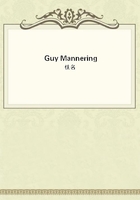
第77章
I must open the door;" and, rising, she faced towards the door of the apartment, observing heedfully not to turn back her head, and, withdrawing a bolt or two (for, notwithstanding the miserable appearance of the place, the door was cautiously secured), she lifted the latch, saying,"Open lock end strife, Come death, and pass life." Brown, who had by this time moved from his post, stood before her as she opened the door. She stepped back a pace, and he entered, instantly recognising, but with no comfortable sensation, the same gipsy woman whom he had met in Bewcastle. She also knew him at once, and her attitude, figure, and the anxiety of her countenance assumed the appearance of the well-disposed ogress of a fairy tale, warning a stranger not to enter the dangerous castle of her husband. The first words she spoke (holding up her hands in a reproving manner)were, "Said I not to ye, Make not, meddle not?--Beware of the redding straik! [*The redding straik, namely, a blow received by a peacemaker who interfere betwixt two combatants, to red or separate them, is proverbially said to be the most dangerous blow a man can receive.] you are come to no house o' fairstrae [*Natural]
death." So saying, she raised the lamp, and turned its light on the dying man, whose rude and harsh features were now convulsed with the last agony. A roll of linen about his head was stained with blood, which had soaked also through the blankets and the straw. It was, indeed, under no natural disease that the wretch was suffering. Brown started back from this horrible object, and, turning to the gipsy, exclaimed, "Wretched woman, who has done this?""They that were permitted," answered Meg Merrilies, while she scanned with a close and keen glance the features of the expiring man.--"He has had a sair struggle--but it's passing--I kenn'd he would pass when you came in.--That was the death-ruckle--he's dead."Sounds were now heard at a distance, as of voices. "They are coming," said she to Brown; "you are a dead man if ye had as mony lives as hairs." Brown eagerly looked round for some weapon of defence. There was none near. He then rushed to the door, with the intention of plunging among the trees, and making his escape by flight, from what he now esteemed a den of murderers, but Merrilies held him with a masculine grasp. "Here," she said, "here be still and you are safe--stir not, whatever you see or hear, and nothing shall befall you."Brown, in these desperate circumstances, remembered this woman's intimation formerly, and thought he had no chance of safety but in obeying her. She caused him to couch down among a parcel of straw on the opposite side of the apartment from the corpse, covered him carefully, and flung over him two or three old sacks which lay about the place. Anxious to observe what was to happen, Brown arranged, as softly as he could, the means of peeping from under the coverings by which he was hidden, and awaited with a throbbing heart the issue of this strange and most unpleasant adventure. The old gipsy, in the meantime, set about arranging the dead body, composing its limbs, and straightening the arms by its side. "Best to do this," she muttered, "ere he stiffen." She placed on the dead man's breast a trencher, with salt sprinkled upon it, set one candle at the head, and another at the feet of the body, and lighted both. Then she resumed her song, and awaited the approach of those whose voices had been heard without.
Brown was a soldier, and a brave one; but he was also a man, and at this moment his fears mastered his courage so completely that the cold drops burst out from every pore. The idea of being dragged out of his miserable concealment by wretches, whose trade was that of midnight murder, without weapons or the slightest means of defence, except entreaties, which would be only their sport, and cries for help, which could never reach other ear than their own--his safety entrusted to the precarious compassion of a being associated with these felons, and whose trade of rapine and imposture must have hardened her against every human feeling--the bitterness of his emotions almost choked him. He endeavoured to read in her withered and dark countenance, as the lamp threw its light upon her features, something that promised those feelings of compassion, which, females, even in their most degraded state, can seldom altogether smother. There was no such touch of humanity about this woman. The interest, whatever it was, that determined her in his favour, arose not from the impulse of compassion, but from some internal, and probably capricious, association of feelings, to which he had no clew. It rested, perhaps, on a fancied likeness, such as Lady Macbeth found to her father in the sleeping monarch.
Such were the reflections that passed in rapid succession through Brown's mind, as he gazed from his hiding-place upon this extraordinary personage. Meantime the gang did not yet approach, and he was almost prompted to resume his original intention of attempting an escape from the hut, and cursed internally his own irresolution, which had consented to his being cooped up where he had neither room for resistance nor flight.